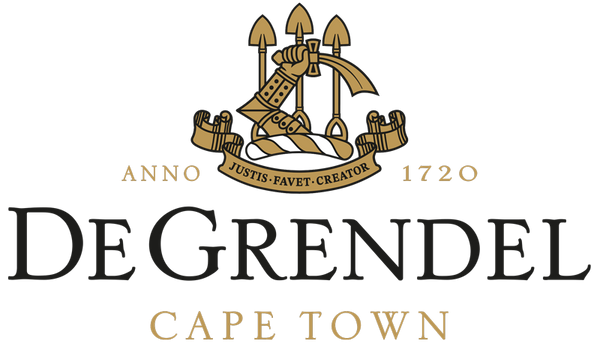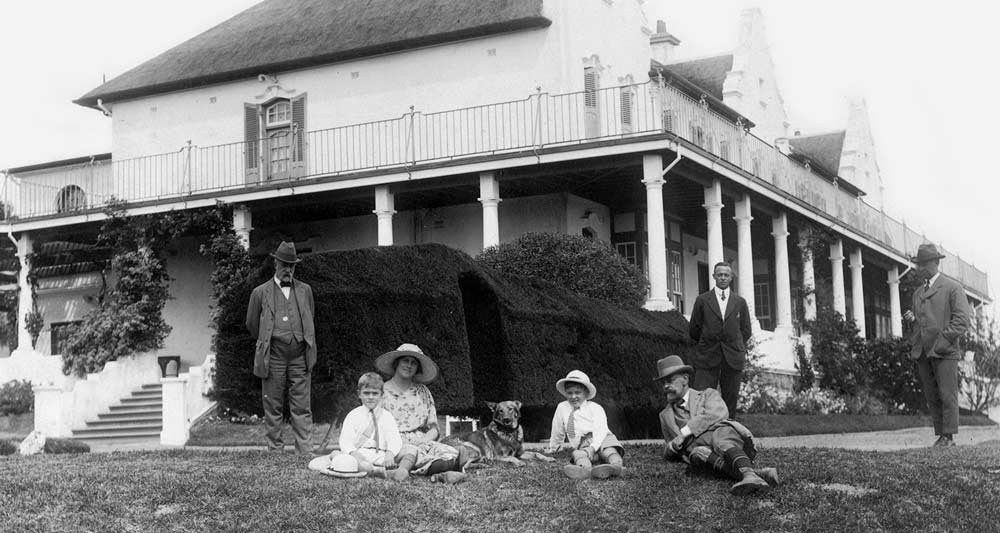
The Family
The Graaff family have played a defining role in the South African political, social and business landscape for over three generations.
From his humble origins as a young farm boy, the vision and foresight of First Baronet Sir David Pieter de Villiers Graaff established the foundations of a family legacy that is carried forward by his great-grandson Fourth Baronet Sir De Villiers Graaff. The historic farm De Grendel, with its sweeping views across Table Bay towards Table Mountain, is home to a family lineage that continues from generation to generation.
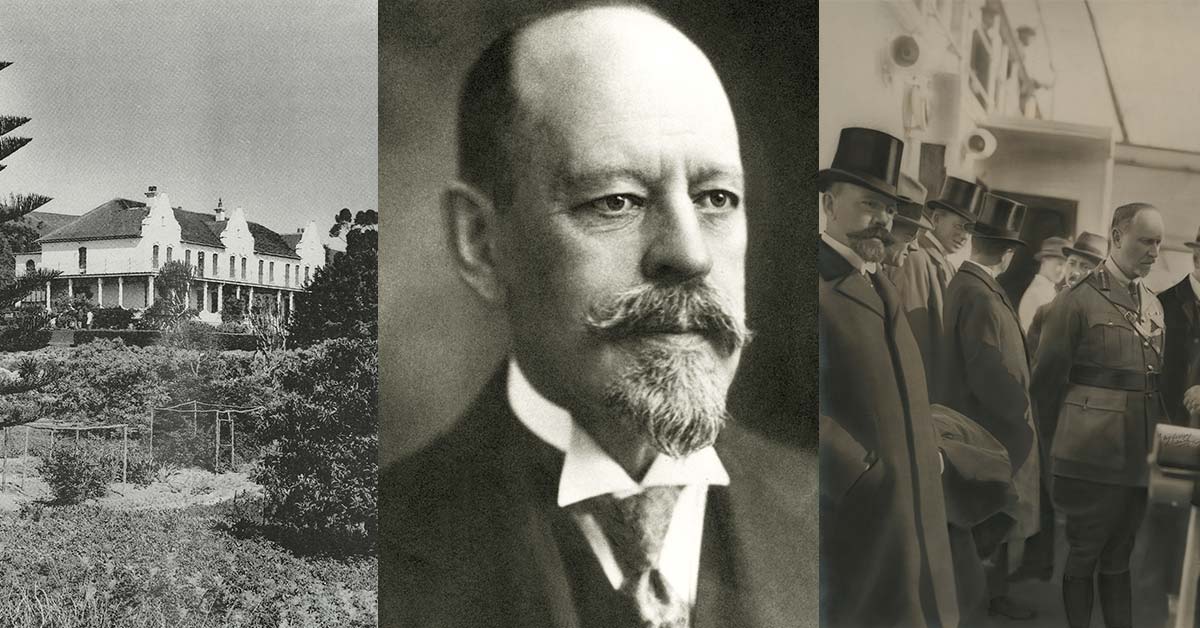
Sir David Pieter de Villiers Graaff, 1st Baronet
Mayor of Cape Town, Cabinet Minister, High Commissioner to UK, Delegate to the Treaty of Versailles, businessman and the founder of De Grendel.
Sir David Pieter De Villiers Graaff, the first Baronet of De Grendel, is famous as one of the leading politicians and businessmen in the early days of South Africa.
He not only led the introduction of electricity into the city of Cape Town by building the city's first power station (which still stands today next to the Molteno Dam in Oranjezicht), built the Foreshore by reclaiming the land below Strand Street from the sea, and was the main investor in the Table Mountain Aerial Cableway, which the family still part own today. He was a member of both the Cape and South African parliaments, and a Cabinet Minister in the first cabinet of the Union of South Africa with his close friends Louis Botha and Jan Smuts. He accompanied Botha to the Versailles peace conference in 1919. For his part in the formation of the Union of South Africa, he was made a baronet by King George V in 1911.
He started life as a butcher’s assistant at the age of 11. By 22, he and his brother were directors of their company and realized the immense possibilities of refrigerating meat, founding The Imperial Cold Storage Company, and building it into one of the largest cold storage companies in the world. He was mayor of Cape Town at the age of 32.
Sir David bought De Grendel in 1891 to stable his prized Arab horses, and built the Herbert Baker style manor house in 1898.
CLICK HERE to read more about the first baronet of De Grendel.
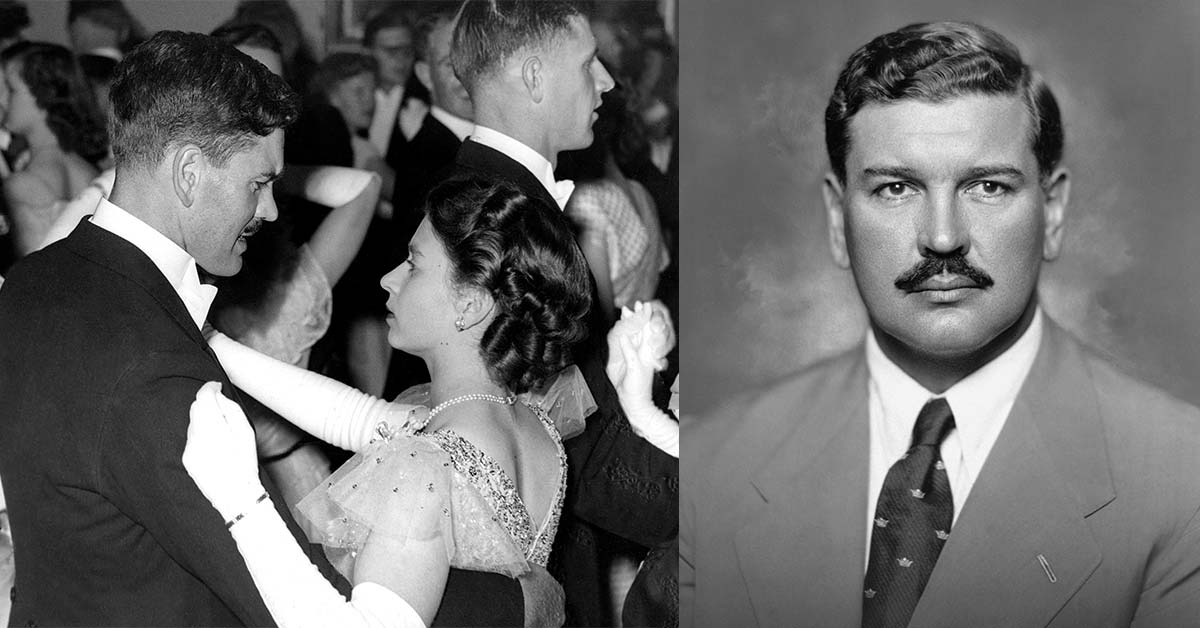
Sir De Villiers Graaff, 2nd Baronet
Leader of the Official Opposition for 21 years.
Affectionately known as “Div”, Sir De Villiers succeeded to the baronetcy in 1931 and practised as an advocate of the Supreme Court in South Africa after studying at Oxford.
During World War II he saw service in Northern Africa and was taken prisoner at Tobruk. He was decorated in 1947 and received the MBE for his inspiring leadership as a Defence Force Officer.
He became a member of Parliament in 1948, the year his United Party was ousted from government by the National Party. He took over the leadership of the United Party in 1956, and for the next 21 years he led the parliamentary opposition to apartheid. He was known as “the first gentleman” of politics, and was always impeccably dressed, with a collection of soft felt hats, but at heart remained a farmer, seen frequently at agricultural shows or standing among his Holstein herd. When the family travelled to Europe, they took a cow on the ship with them so they could have fresh De Grendel milk during the voyage.
Sir Div made a social gaffe when the Queen of England, then Princess Elizabeth, visited South Africa in 1947. In the restaurant is a photo of the young De Villiers dancing with the princess at her 21st birthday party where he neglected to wear gloves. A commoner is not supposed to dance with royalty without wearing gloves.
The M1 highway in Johannesburg, was named the De Villiers Graaff Motorway in his honour.
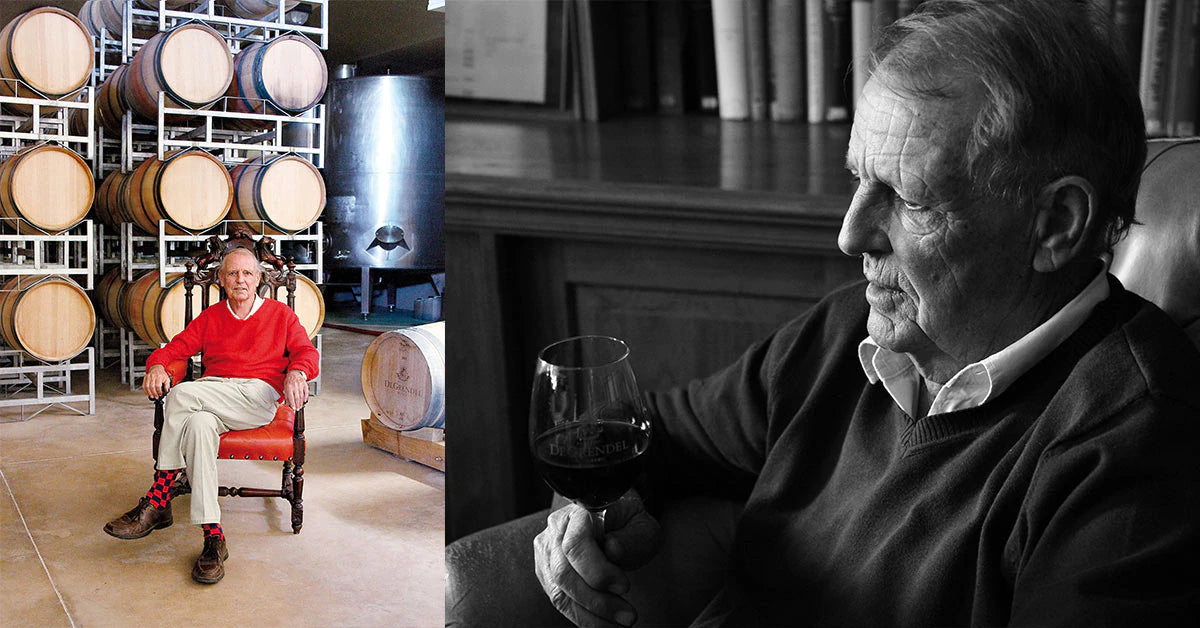
Sir David De Villiers Graaff, 3rd Baronet
The former politician who planted the first De Grendel vines.
The late Sir David Graaff, who passed away in 2015, was not your usual wine producer, preferring a Latin quotation to marketing speak. He was a great raconteur, endearingly prone to wild exaggeration.
Sir David didn’t meet his father until he was five years old. That’s because by the time he was born in 1940, his father had left to serve in the North African campaign and was a prisoner of war, only returning to South Africa in 1945.
Sir David studied agriculture at the University of Stellenbosch, and read Politics, Philosophy and Economics at Magdalen College, Oxford. He also studied at the University of Grenoble, where he would get the inspiration to become a winemaker.
Like his father and grandfather, he was also elected as a Member of Parliament – where he served the constituency of Wynberg. He was made Deputy Minister of Trade and Industry by FW De Klerk in 1991, shortly after the commencement of negotiations between the government and the ANC, with the brief to ensure that the South African economy stayed on track during those nervous times.
He withdrew from politics to concentrate on farming after the 1999 elections, and was the visionary who first planted vines and built the wine cellar at De Grendel.
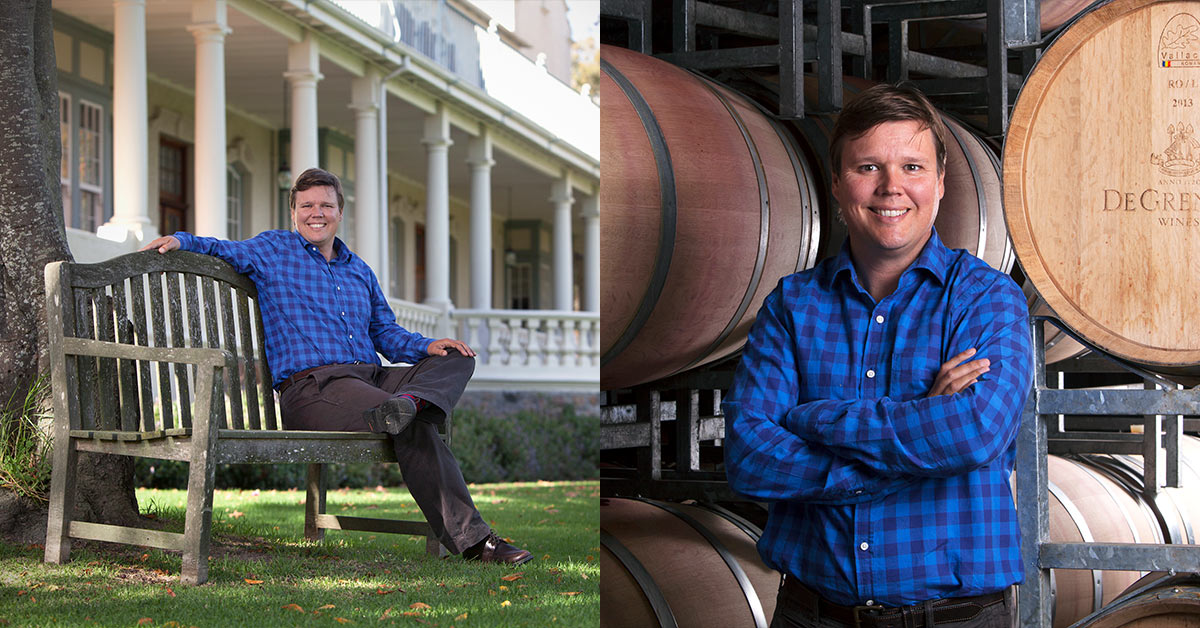
Sir De Villiers Graaff, 4th Baronet
Farmer and Managing Director of De Grendel Wines
A more modest and unassuming man than De Villiers you could not meet. Like his father, he studied agriculture at Stellenbosch before moving to the Hex River Valley to manage the family’s fruit farms where he expanded and initiated two empowerment projects. Empowerment and education are close to his heart and he is the Chairman of the Waitrose Foundation which funds upliftment of farmworkers.
He moved to De Grendel in 2011 with his wife Gaedry, Lady Graaff and their four children to take over the De Grendel wine business, overseeing its expansion from a winery which produced 20 000 cases to one which aims to produce 55 000 in 2017.
He is also the Graaff responsible opening the acclaimed restaurant at De Grendel which opened its doors in July 2012.
De Villiers has initiated a number of projects including a solar farm, blueberries, indigenous game (including bontebok and eland) and a premium cider, Three Spades Cider.
De Villiers has no intentions of entering politics at this stage, but given the family history, we wouldn’t bet against it.
